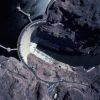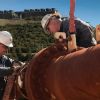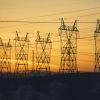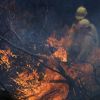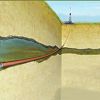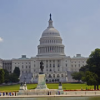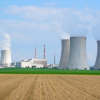Congressional Briefings
In collaboration with other scientific societies and coalitions, the AGI Geoscience Policy Program hosts congressional briefings to educate and inform policy makers on relevant geoscience topics and issues. These briefings feature scientific speakers from government, academic, and industry sectors.
(2015-11-19)
Hydropower is the largest renewable energy resource in the United States and provided about 6 percent of total U.S. energy generation in 2014, according to the Energy Information Administration*. Washington, Oregon, New York, and California are a few of the top hydropower producing states but nearly all states generate at least some hydroelectric power. Research is helping to expand the variety of hydropower technologies, which are being deployed at a range of scales.
(2015-09-15)
Geothermal energy is a relatively untapped resource that could be a significant source of clean power for the United States in the future. According to the U.S. Geological Survey, heat from the Earth’s interior could fuel more than 10 percent of the nation’s current electrical generating capacity. The United States is already the world leader in geothermal energy production, accounting for 28 percent of the global installed geothermal capacity.
(2015-06-12)
Geoscience information can be used by federal, state, and local decision makers to assess the positive and negative impacts of onshore oil and gas energy resource development, and to inform policy to both facilitate U.S. energy production and minimize impacts on water and land resources.
In this briefing, the speakers will address key questions that geosciences help to inform, such as:
(2015-04-21)
Energy, water, and land are fundamental, interrelated natural resources critical to the health, economic growth, and security of the nation. The connections and feedbacks among these three resources have impacts on human, environmental, and infrastructure systems. Although the U.S. is endowed with many options for supplying energy to meet national demands, different energy sources have different water and land-use requirements that have implications for local and regional water and land resources.
(2014-09-11)
The National Fire Protection Association, the University of California at Riverside and San Diego, and the Western Governors’ Association in conjunction with the Hazards Caucus Alliance are pleased to host a briefing on the challenges to the nation that wildfires pose. Experts will discuss advances in the science and understanding of wildfires, the impact of federal and state policies, mitigation strategies for communities, and new technologies for first responders.
Speakers
(2014-07-18)
Carbon capture and storage is an important potential management strategy for greenhouse gas emissions. This briefing will address geologic carbon storage, one avenue to sequester carbon dioxide from large stationary sources by injecting it deep underground. Leading experts in the field will examine:
(2014-06-26)
Speakers:
Adam Brandt, Department of Energy Resources Engineering, Stanford University
John Browning, Senior Research Fellow, Bureau of Economic Geology, University of Texas at Austin
Chris McGill, Vice President, Policy Analysis, American Gas Association, and Member of the Potential Gas Committee
Tom Temples, Past President of AAPG Division of Environmental Geosciences, and Technical Director of Geoscience and Petrophysics, PetroSkills
(2014-06-23)
Finding Stable Ground: Using Science and Partnerships to Manage Landslides Hazards was a congressional briefing sponsored by the Hazards Caucus Alliance, the Association of Environmental & Engineering Geologists, the Association of American State Geologists, and the American Society of Civil Engineers Geo-Institute. On Monday, June 23, four landslides experts from across the U.S. came to Washington, D.C.
(2014-05-22)
Speakers:
Scott Tinker, Professor and State Geologist of Texas, Bureau of Economic Geology, The University of Texas at Austin
Rex Buchanan, Senior Policy Advisor, Environmental Defense Fund
Scott Anderson, Interim Director, Kansas Geological Survey, University of Kansas
Nick Tew, State Geologist and Oil and Gas Supervisor, Geological Survey of Alabama and State Oil and Gas Board of Alabama
In this briefing, the speakers will address key questions that the geosciences help to address:
(2014-03-11)
Speakers:
Susan Hall, Uranium Resource Expert, U.S. Geological Survey
Annie Kammerer, Principal Seismologist, Bechtel Corporation
Jean M. Bahr, Professor, Department of Geoscience, University of Wisconsin-Madison
In this briefing, the speakers will address some key questions that geosciences can help to answer:

